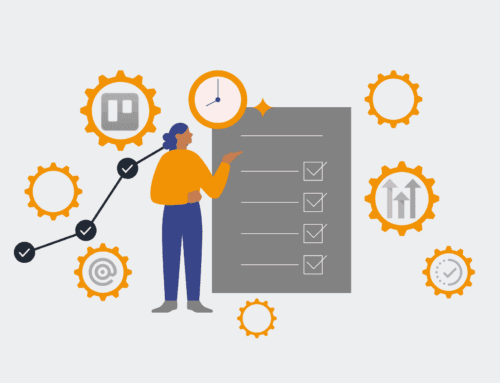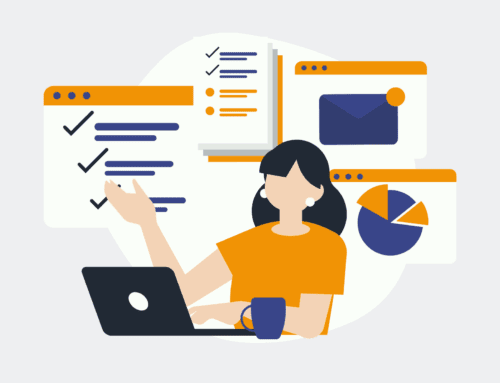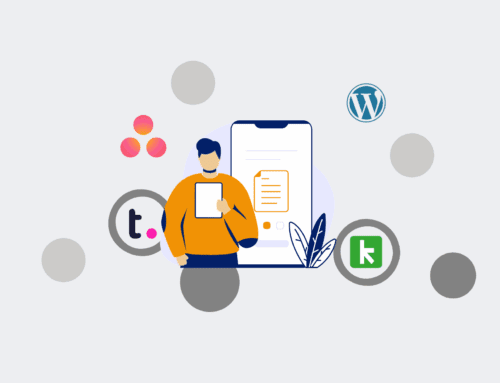Data-Driven Decisions: Using AI Insights for Continuous Onboarding Improvements
In today’s competitive talent landscape, a successful onboarding experience is no longer a luxury; it’s a strategic imperative. The initial weeks and months a new hire spends with your organization are critical for engagement, productivity, and retention. Yet, many companies still rely on antiquated, intuition-driven onboarding processes. The truth is, without tangible data, optimizing onboarding is like navigating a ship without a compass. At 4Spot Consulting, we advocate for a more intelligent approach: leveraging AI insights to transform onboarding from a mere formality into a continuously improving, data-driven journey.
The Onboarding Blind Spot: Why Gut Feelings Aren’t Enough
For too long, onboarding success has been measured anecdotally. “Did the new hire seem happy?” “Did they finish their paperwork on time?” These observations, while well-intentioned, offer a superficial understanding of a complex process. The real challenges often lie beneath the surface: hidden bottlenecks, inconsistent training delivery, delayed access to essential tools, or a lack of meaningful early engagement. These issues contribute to early attrition, prolonged ramp-up times, and ultimately, a significant drain on resources.
The traditional approach lacks the analytical horsepower to identify specific pain points and predict future outcomes. You might know *that* new hires are struggling, but you won’t know *why* or *where* the process is truly breaking down. This is where AI steps in, offering a magnifying glass to reveal the nuances of the onboarding journey and illuminate pathways for optimization that human observation alone simply cannot.
Unlocking Insights: How AI Transforms Onboarding Data
AI’s power in onboarding lies in its ability to process vast quantities of data points that would overwhelm human analysts. Imagine compiling data from HRIS systems, learning management platforms, communication tools, performance reviews, and even sentiment analysis from early feedback surveys. AI can ingest this disparate data and identify correlations, patterns, and anomalies that reveal the true state of your onboarding program.
For example, AI can analyze the progression of new hires through training modules, comparing completion rates and assessment scores against their demographic data, previous experience, and eventual performance metrics. It can flag if new hires in a specific department consistently struggle with a particular software tool, indicating a need for more targeted pre-onboarding training or better in-app support. By connecting these dots, AI moves us beyond reactive problem-solving to proactive, predictive intervention.
Predictive Analytics for Proactive Onboarding Adjustments
One of the most compelling applications of AI in onboarding is its predictive capability. By analyzing historical data, AI can develop models that predict which new hires might be at risk of early departure based on their onboarding experience. This isn’t about profiling individuals but identifying systemic weaknesses. For instance, if data shows that new hires who don’t complete specific compliance training within their first week are 30% more likely to leave within three months, the system can flag this and trigger automated reminders or personalized outreach. This allows HR and managers to intervene with targeted support *before* a small issue escalates into a larger problem.
Furthermore, AI can predict the effectiveness of different onboarding pathways. By A/B testing variations in content delivery, mentor assignments, or communication frequency, and then analyzing the resulting engagement and performance data, AI can rapidly identify the most impactful strategies. This iterative optimization ensures your onboarding process is not static but continually evolves to meet the needs of your new hires and the business.
From Data to Action: Implementing AI-Driven Improvements
The true value of AI in onboarding isn’t just in generating insights; it’s in translating those insights into actionable improvements. At 4Spot Consulting, we help high-growth B2B companies integrate AI into their HR processes to achieve tangible results. This isn’t about ripping out existing systems but intelligently layering AI capabilities to enhance what’s already there.
Consider the example of an HR firm we assisted. They were experiencing high early turnover in their sales department, but couldn’t pinpoint why. Our OpsMap™ diagnostic revealed that new sales hires were consistently struggling with a specific CRM integration after their first month. By using AI to cross-reference training completion with early performance metrics and manager feedback, we identified a critical gap in the initial training sequence. Our OpsBuild™ solution incorporated an AI-powered personalized learning module for that specific integration, triggered automatically based on the new hire’s progress. Within six months, early sales hire retention improved by 20%, and their ramp-up time to quota decreased by two weeks.
Implementing AI-driven insights can manifest in several ways:
- Personalized Learning Paths: AI can recommend specific training modules, resources, or mentor connections based on a new hire’s role, previous experience, and identified skill gaps.
- Automated Feedback Loops: AI-powered sentiment analysis can scan anonymous feedback or communication patterns to alert HR to potential disengagement or areas of confusion.
- Dynamic Content Delivery: Onboarding content can automatically adapt based on a new hire’s progression, ensuring they receive the right information at the right time.
- Resource Allocation Optimization: Data can inform where to invest more resources – be it in IT support for specific software, additional training for managers, or improved pre-boarding communications.
The Future is Continuous: Beyond the First 90 Days
Continuous onboarding doesn’t end after the first few weeks; it’s an ongoing journey of integration and development. AI allows us to extend this continuous improvement mindset far beyond the initial ramp-up. By monitoring performance, engagement, and career progression data, AI can identify opportunities for upskilling, mentorship, and internal mobility, ensuring employees remain engaged and productive throughout their tenure.
Adopting an AI-driven approach to onboarding is not just about adopting new technology; it’s about embracing a new philosophy of employee experience. It’s about moving from guesswork to precision, from reactive to proactive, and ultimately, from good onboarding to truly exceptional, continuously optimized integration that drives long-term success for both the employee and the organization. Are you ready to save 25% of your day by automating these critical HR processes?
If you would like to read more, we recommend this article: The Intelligent Onboarding Revolution: How AI Drives HR Excellence and New-Hire Success









